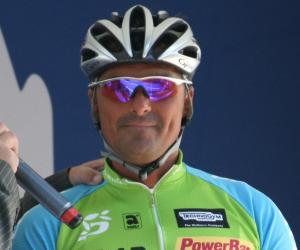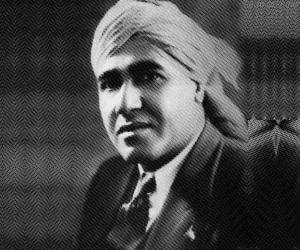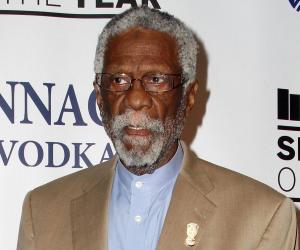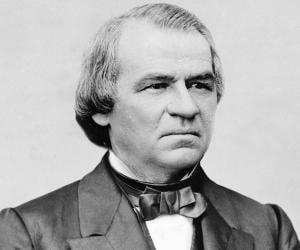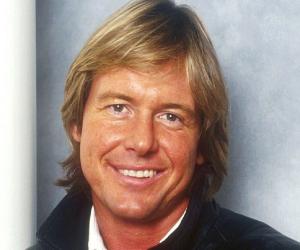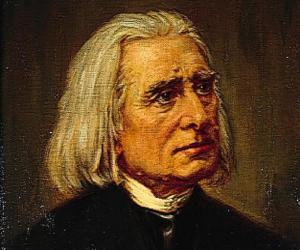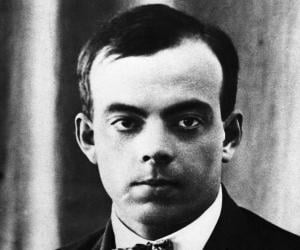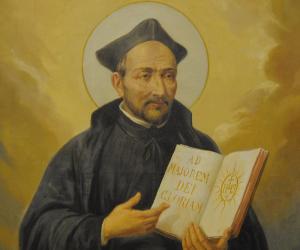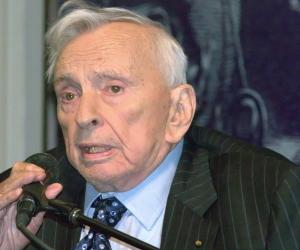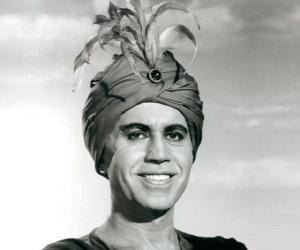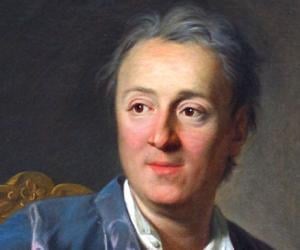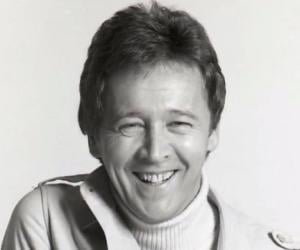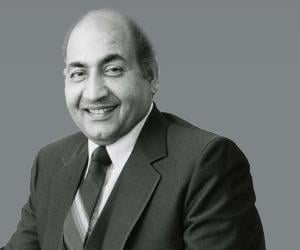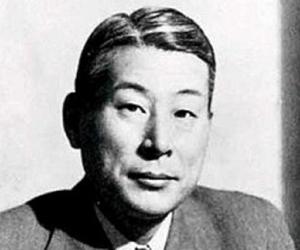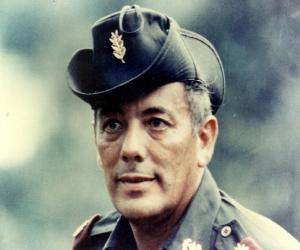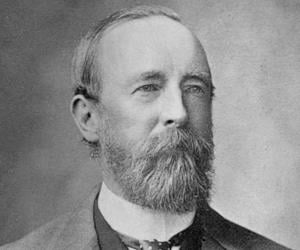Bill Russell was an American retired professional basketball player. Widely regarded as one of the greatest basketball players ever, Russell led the US national basketball team to victory and helped his team win an Olympic gold at the 1956 Summer Olympics. Also known for his accomplishments in the civil rights movement, Russell was honored with the Presidential Medal of Freedom in 2011.
The 17th president of the United States, Andrew Johnson assumed the presidency while serving as the vice president when Abraham Lincoln was assassinated. Born in poverty, Andrew Johnson did not attend school. However, he worked his way up to become a prominent politician—an inspiring story indeed!
Canadian professional wrestler, amateur boxer, and actor, Roddy Piper, is best remembered for his work with the World Wrestling Federation (WWF). He headlined multiple PPV events and hosted the popular WWF interview segment Piper's Pit. He was inducted into the WWE Hall of Fame in 2005. He also appeared in a few films and TV shows.
Franz Liszt was a Hungarian composer, conductor, arranger, music teacher, and virtuoso pianist of the Romantic era. Considered one of the greatest pianists ever, Liszt's works influenced his contemporaries and successors alike. Perhaps his greatest legacy is his work as a teacher, although his rich body of work might suggest otherwise; he taught people like Karl Klindworth among other pianists.
French writer, poet, aristocrat, and journalist, Antoine de Saint-Exupery, is best remembered for his novella, The Little Prince. He was a pioneering aviator as a young man. A successful commercial pilot before World War II, he joined the French Air Force at the start of the war. Equally successful as a writer, he won several of France's highest literary awards.
Saint Ignatius of Loyola was a Spanish Basque Catholic priest and theologian in the 16th century. He was one of the founders of the religious order called the Society of Jesus and served as its first Superior General at Paris. He was an inspired spiritual director and the founder of what is today known as "Ignatian spirituality."
Gore Vidal was an American intellectual and writer. He served as a major inspiration to gays, lesbians, and bisexuals as he was openly bisexual and often incorporated LGBT characters in his novels, which was very unusual at the time. He was also known for his debates with William F. Buckley Jr., which inspired the 2015 documentary film Best of Enemies.

Denis Diderot revolutionized the Age of Enlightenment as the co-founder of Encyclopédie, which was banned for questioning religion. He had flirted with the idea of joining the theater and becoming a priest, and even studied law, but later devoted himself to languages, literature, and philosophy.
Chiune Sugihara was a Japanese diplomat best remembered for helping thousands of Jews flee Europe during the Second World War. He did so by issuing transit visas to the Jews, enabling them to travel through Japanese territory. Sugihara helped the Jews despite knowing that he was risking the lives of his family and his job.
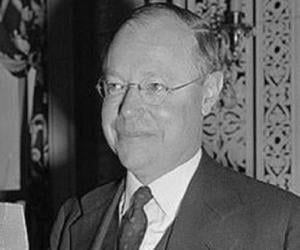
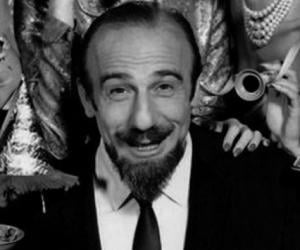

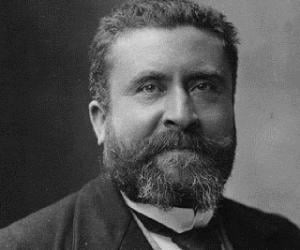
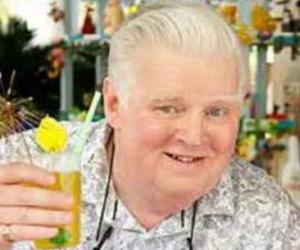
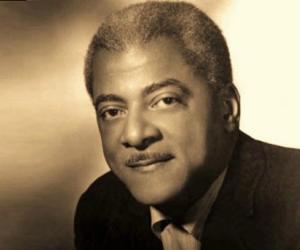
British civil servant A. O. Hume is remembered as the Father of the Indian National Congress, having co-founded the party. Apart from being an administrator, he was also an ornithologist and had written List of Birds in India. His vocal criticism of the British made his bosses distrust him.

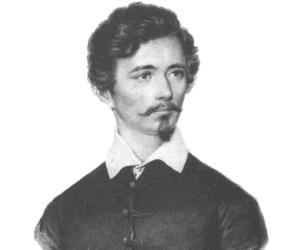
Hungarian poet and revolutionary Sándor Petőfi is remembered as one of the pillars of the 1848 Hungarian Revolution, and his song Talpra Magyar became an anthem of the revolution. While he was initially part of the army, ill health got him dismissed soon. He also penned the epic fairy tale János vitéz.
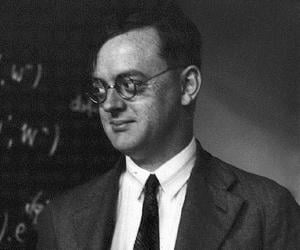
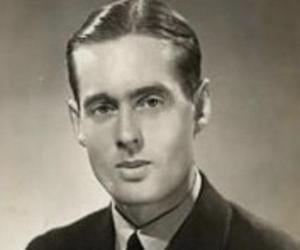
Legendary RAF pilot Leonard Cheshire was not just famous for his exploits during World War II but was also a dedicated philanthropist. His heroic action of flying a burned bomber plane back safely won him a Distinguished Service Order. His charitable trust is now known as Leonard Cheshire Disability.
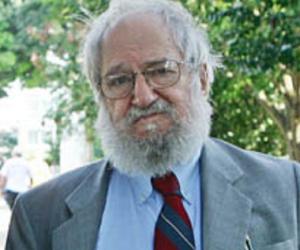
South African-born American mathematician and computer scientist Seymour Papert is best remembered for co-inventing the computer programming language Logo, which is also an educational tool. He was part of the faculty at MIT and was known for his pioneering research on children’s learning processes, the constructionist movement, and AI.

Architect Richard Morris Hunt is largely credited with bringing in the French Beaux-Arts style to the U.S. He was also a major force behind the formation of the American Institute of Architects. His creations include the Metropolitan Museum of Art’s façade and the Statue of Liberty’s pedestal.
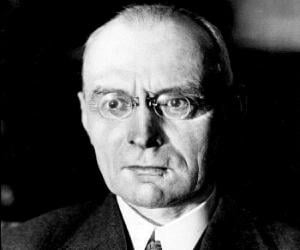
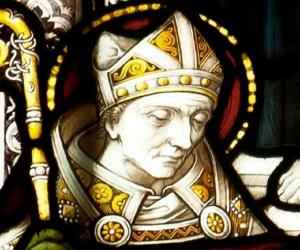
Initially a high-ranking government official, Germanus of Auxerre quit his job to devote himself to the Church. The Roman clergyman served as the bishop of Auxerre. He established the Monastery of SS. Cosmas and Damian. He is also remembered for his fight against Pelagianism and his support for the Cult of Saint Alban.


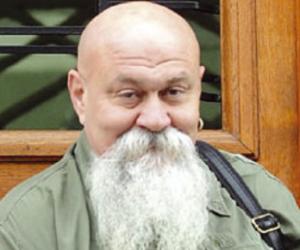
Louis was a Serbian singer best remembered for his unique musical style. In 2006, he came close to representing Serbia at the Eurovision Song Contest when he almost won the Beovizija fest alongside Serbian band Flamingosi.
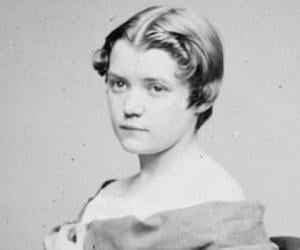

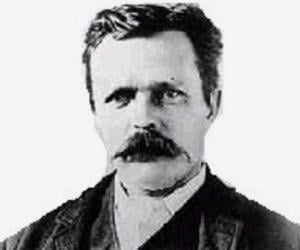
John Milne was a British mining engineer and geologist. He is credited with co-founding the Seismological Society of Japan which raised money for the invention of seismographs. John Milne and his team went on to invent the horizontal pendulum seismograph which allowed him to detect various kinds of earthquake waves.
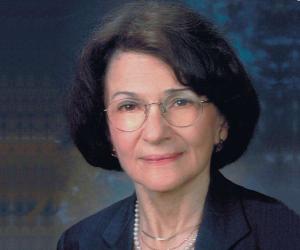
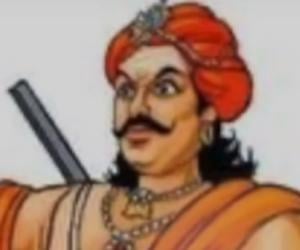
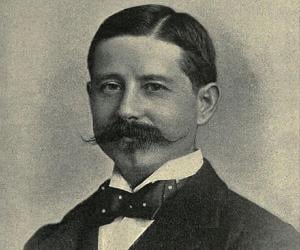
British botanist Harry Johnston is remembered for his extensive exploratory voyages to Africa. His explorations gave way to the 19th-century Scramble for Africa by colonial powers. He had also been a painter and a freelance journalist in his initial days in Africa. He also penned countless books on Africa.
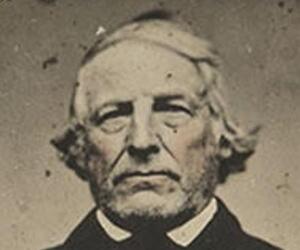
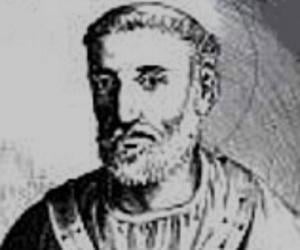


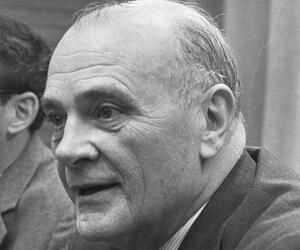
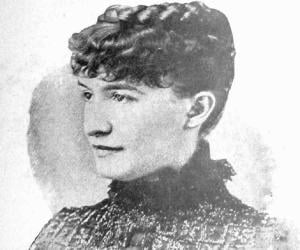
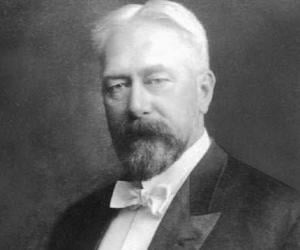
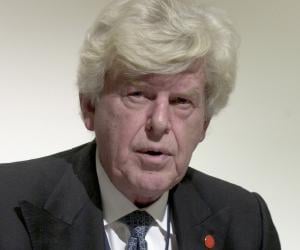
Hailed as the Father of the Euro or Mr. Europe, Wim Duisenberg was the first president of the European Central Bank and managed the introduction of a common currency in Europe. He had also been the director of the Nederlandsche Bank and the Dutch minister of finance.
